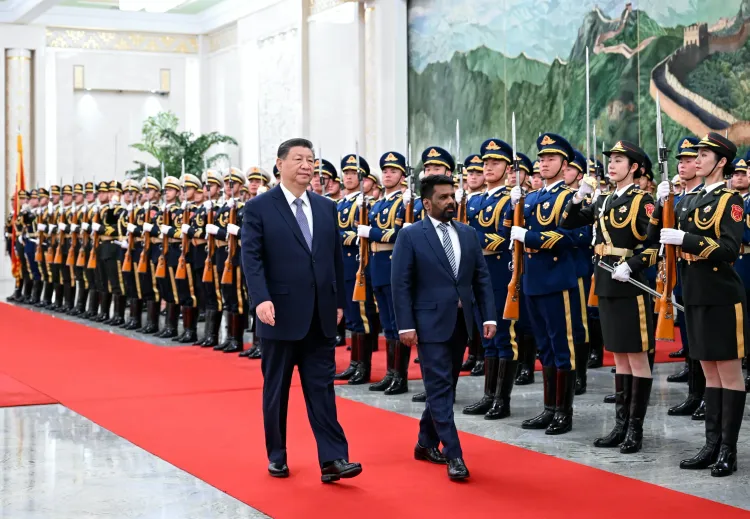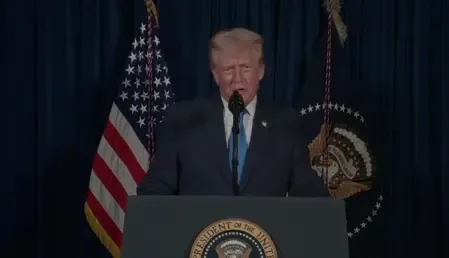Can Sri Lanka's Economic Engagement with China Survive Without Transparency?

Synopsis
Key Takeaways
- Economic engagement with China requires transparency.
- Shortcuts can lead to serious financial liabilities.
- Reputational damage can affect economic recovery.
- Scrutiny of international partnerships is essential.
- Lessons from the BYD crisis highlight the need for due diligence.
Colombo, Aug 9 (NationPress) The economic collaboration with China cannot thrive through shortcuts or opacity, as highlighted by a report from Sri Lanka's prominent newspaper, focusing on the crisis stemming from the ambitious project with BYD to introduce electric vehicles to the island.
When Sri Lanka unveiled its partnership with BYD to import electric vehicles, it was celebrated as a significant achievement: a step towards green mobility and a testament to strengthening economic relations with Beijing. However, this once-promising venture has now devolved into a crisis. Almost 1,000 BYD cars are currently detained at Colombo Port, representing a potential liability of Rs 22 billion due to alleged under-declaration of motor capacities, according to Sri Lanka's Daily Mirror.
Customs officials have raised concerns that BYD vehicles were imported with claims of 100-kilowatt motors, leading to a reduced excise duty of Rs 2.4 million per vehicle. In contrast, similar models in global markets are said to feature 150-kilowatt motors, incurring Rs 5.4 million in duties. If this under-declaration is substantiated, the importer may face a tax shortfall of Rs 3 billion, escalating to Rs 12–22 billion when considering penalties, stranded inventory, and customer refunds.
This situation is evolving into more than just a corporate scandal for Sri Lanka, as noted in the report titled 'Sri Lanka's Costly EV Gamble: When China's BYD Became a Liability.' It emphasizes how, in its rush to embrace China's electric movement, the nation may have exposed itself to reputational, financial, and geopolitical risks.
The report also pointed out that the reputational damage is reverberating through the very channels Sri Lanka relies on for economic recovery.
BYD is not just a car manufacturer; it embodies China's high-tech industrial strategy, supported by state interests and integral to Beijing's global initiatives in electric mobility. A scandal involving BYD, whether through direct involvement or regulatory vagueness, could trigger scrutiny of the Sri Lanka-China commercial relationship itself.
Colombo, as mentioned, can ill afford to jeopardize its economic stability during these crucial times, especially with US tariffs and ongoing IMF-driven austerity measures.
If the allegations are validated, this scandal will not only shake investor confidence in the electric vehicle sector but also damage the credibility of Sri Lanka's corporate landscape and, by extension, the reliability of its relationships with foreign entities. BYD's image, carefully crafted as a symbol of Chinese technological progress, now risks being tainted by a regulatory controversy that may escalate into legal and political challenges.
For Sri Lanka, the vital lesson from this crisis is clear: engaging economically with China cannot be maintained through shortcuts or opacity. The reputational repercussions of mishandling a high-profile Chinese partnership can outweigh immediate financial setbacks.









